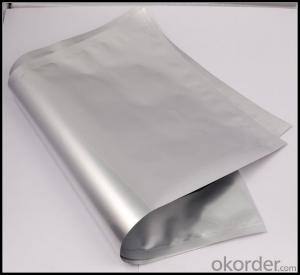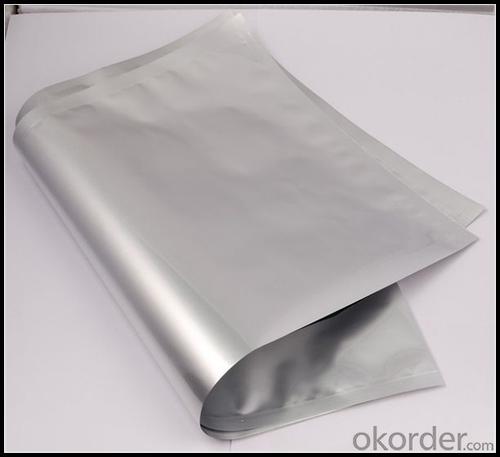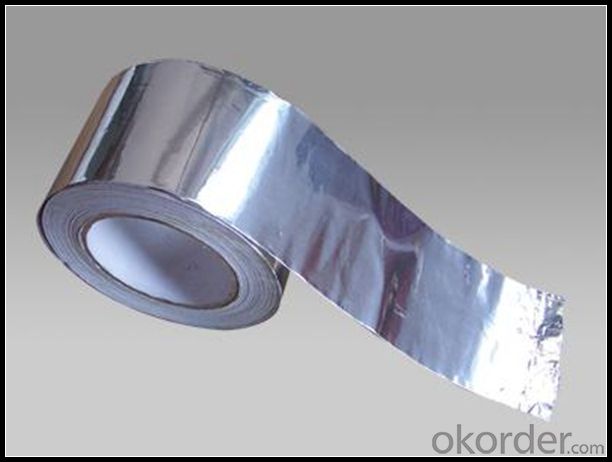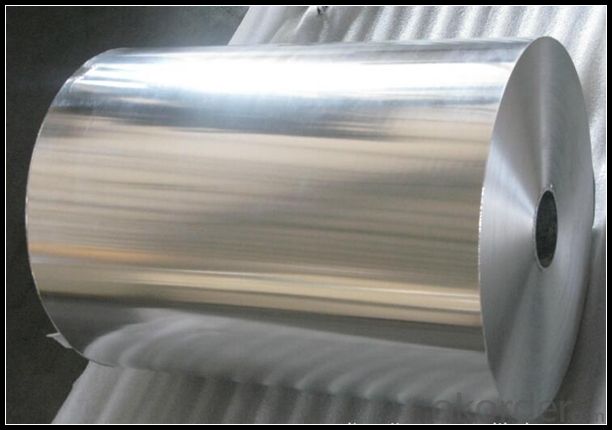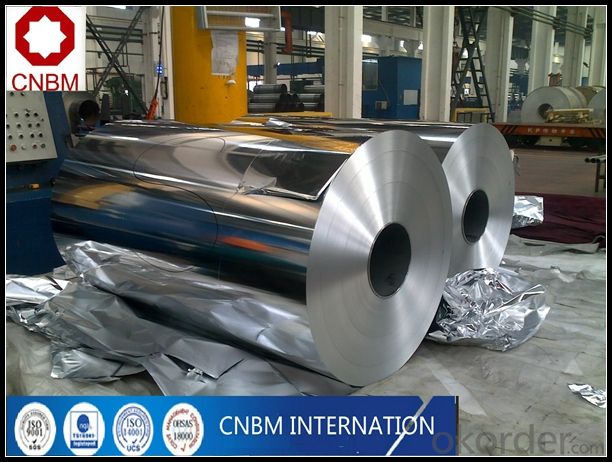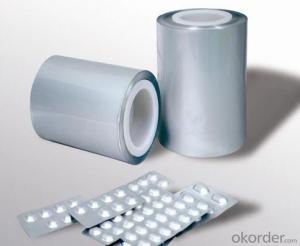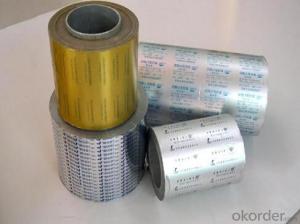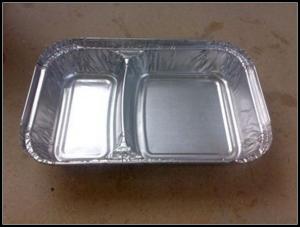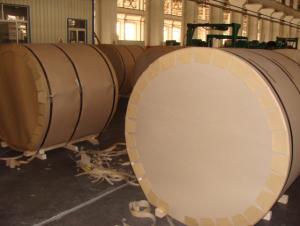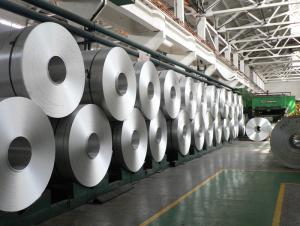Aluminum Coil Anodizing Julie Depirro AA8011/AA8079 Aluminum Foil in Pharmaceutical
- Loading Port:
- Dalian
- Payment Terms:
- TT OR LC
- Min Order Qty:
- 3 m.t.
- Supply Capability:
- 2000 m.t./month
OKorder Service Pledge
OKorder Financial Service
You Might Also Like
Specification
1. Specification of Aluminum Foil
Thickness | 0.1mm-8mm |
Popular Thickness | 0.1mm/0.2mm/0.25mm/0.3mm/0.6mm/0.8mm/1.0mm/1.2mm/1.5mm/2.0mm/3.0mm |
Width | 20mm-2500mm |
inner diameter | 76mm / 152mm |
Material | AA1050, AA1060, AA1070, AA1100, AA1235, AA3003, AA3004, AA3005, AA5052, AA5005, AA5754, AA5083, AA8011, AA8079, etc |
Temper | O,H12,H14,H16,H18,H22,H24,H26,H32,H34,H36,H38, |
Surface | Mill finish / Coated |
Packing | Export standard wooden pallets |
Payment Terms | 100% irrevocable L/C at sight or 30% T/T in advance as deposit,70% balance against the B/L copy |
Minimum Order Quantity | 5000kg |
Delivery time | 30-35 days after the receiving L/C or deposit |
2. Application of Aluminum Foil
(1) Interior: wall cladding, ceilings, bathrooms, kitchens and balconies, shutters, doors, windows,
(2) Exterior: wall cladding, facades, roofing, canopies, tunnels,column covers , renovations.
(3).Advertisement: display platforms, signboards, fascia, shop fronts.
3. Feature of Aluminum Foil
*Such coil is specially designed to replace aluminum ingot, due to the high export tax of aluminum ingot, the coil has better price than ingot.
*This type of coil can fit customer's remelting furnace just like ingot, no need to make any change to the production line that was previously used for ingot. The standard coil size and weight is very suitable for the feed gate of furnace.
*This type of coil causes less material wastage than ingot when remelted.
*Our coil is made directly from ore, no need to go though the ingot making process, quality is much better than other suppliers who use ingot scrap to make coil.
Be free from Oil Stain, Dent, Inclusion, Scratches, Stain, Oxide Dicoloration, Breaks, Corrosion, Roll Marks, Dirt Streaks and other defect which will interfere with use
4. Certificates:
SGS and ROHS (if clients request, paid by client), MTC (plant provided), Certificate of Origin (FORM A, FORM E, CO), Bureau Veritas (if client request, paid by client), CIQS certificate and so on.
5. Image of Aluminum Foil
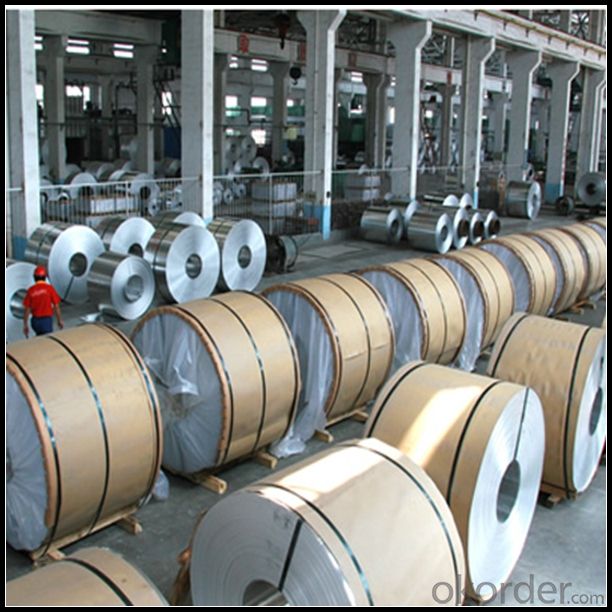
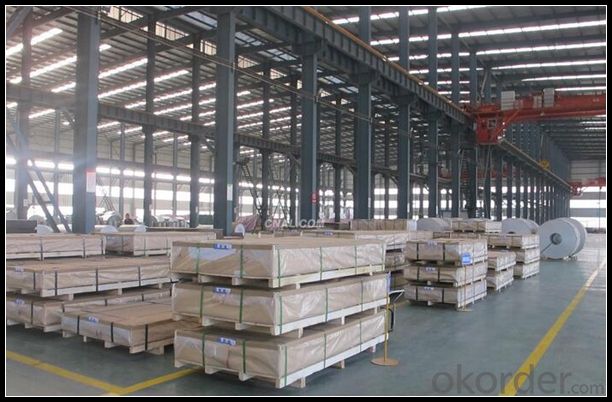
6. Package and shipping of Aluminum Foil
Eye to wall
Eye to the wall
With wood pallet (wooded case also available)
7. FAQ
1) What is the delivery time?
Depends on actual order, around 30 to 35 days
2) What is the QC system?
We have QC staff of 20 persons and advanced equipment, each production is with MTC traced from Aluminum ingot lot.
3) What market do you mainly sell to?
Australia, America, Asia, Middle East, Western Europe, Africa etc
- Q: How to deal with too much aluminum powder in aluminum striping?
- Currently, there are bag dust-removal system and water dust-removal system. The former is very popular with enterprises because of low maintenance cost, accounting for over 90%. But the problem is the dust accumulation because the ventilation and dust removal systems are not produced in strict accordance with the standard. For example, controlling wind speed does not meet the requirement; ventilation and dust removal system does not meet the requirements of explosion-proof, including the set of pipes, series and parallel connection, the choice of dust removal system, the spark detection and extinguishing measures.
- Q: Can aluminum coils be used for food processing conveyor systems?
- Aluminum coils are a viable option for food processing conveyor systems. The food processing industry favors aluminum for its advantageous properties. To begin with, aluminum's lightweight nature facilitates effortless installation and transport. This aspect proves especially valuable for conveyor systems that necessitate frequent reconfiguration or relocation. Moreover, aluminum exhibits exceptional resistance to corrosion, a pivotal attribute in food processing environments where exposure to moisture, chemicals, and food particles is prevalent. Additionally, aluminum's hygienic attributes make it easy to clean and maintain, ensuring adherence to food safety standards. Lastly, aluminum coils can be effortlessly molded and customized to meet the specific requirements of conveyor systems, thereby facilitating efficient and effective food processing operations. Consequently, aluminum coils emerge as a fitting choice for food processing conveyor systems.
- Q: What are the advantages of using aluminum coils over other materials?
- Some advantages of using aluminum coils over other materials include its lightweight nature, excellent thermal conductivity, corrosion resistance, and ease of fabrication. Additionally, aluminum coils offer good electrical conductivity, making them suitable for various applications in industries like automotive, construction, and aerospace.
- Q: Are aluminum coils suitable for electrical transformers?
- Yes, aluminum coils are suitable for electrical transformers. Aluminum is a lightweight and cost-effective material that offers several advantages for transformer construction. It has excellent electrical conductivity, comparable to copper, which allows for efficient power transfer. Additionally, aluminum coils have lower resistance than copper coils, resulting in reduced power losses and improved energy efficiency. The use of aluminum coils in transformers also contributes to weight reduction, making them easier to handle and transport. However, aluminum coils require larger cross-sections compared to copper coils due to their slightly lower conductivity. This means that transformers using aluminum coils may be slightly larger in size. Overall, aluminum coils are a viable and widely used alternative to copper coils in electrical transformers, offering cost savings, high conductivity, and improved energy efficiency.
- Q: This question seeks to understand the various types of aluminum coils that are commonly found in the market.
- <p>Aluminum coils available on the market today can be categorized based on their properties and applications. These include: 1. Plain Aluminum Coils: Used for general purposes like packaging and construction. 2. Embossed Aluminum Coils: Feature a textured surface, used in decorative applications. 3. Alloy Aluminum Coils: Made from a mixture of aluminum and other metals for enhanced strength or corrosion resistance. 4. Color Coated Aluminum Coils: Coated with paint or plastic for aesthetic or protective purposes. 5. Heat Treated Aluminum Coils: Processed to improve their mechanical properties. 6. Mirror Finish Aluminum Coils: Have a highly reflective, polished surface. 7. Pre-painted Aluminum Coils: Coated with a layer of paint before being used in construction or other applications. Each type serves specific industries and applications, with variations in thickness, width, and alloy composition.</p>
- Q: Can aluminum coils be used in architectural applications?
- Yes, aluminum coils can be used in architectural applications. Aluminum is a versatile material that offers excellent durability, corrosion resistance, and a lightweight nature, making it suitable for various architectural uses. It is commonly used in roofing, cladding, facades, windows, and other decorative elements in buildings.
- Q: What is the primary function or use of a spring steel wire coil?
- <p>A spring steel wire coil is primarily used for its high elasticity and strength. It is designed to return to its original shape after being deformed, which makes it ideal for applications requiring resilience and durability. Common uses include the manufacturing of various types of springs, such as compression springs, torsion springs, and extension springs, found in automotive suspensions, mechanical devices, and industrial equipment. The coil's properties also make it suitable for applications in furniture, electronics, and other industries where a reliable and consistent force is needed.</p>
- Q: How do aluminum coils contribute to LEED certification requirements?
- Aluminum coils can contribute to LEED (Leadership in Energy and Environmental Design) certification requirements in several ways. First, aluminum is a highly sustainable material as it is 100% recyclable without any loss of quality. This means that using aluminum coils in construction projects can contribute to LEED credits for materials and resources, specifically in the category of recycled content. Additionally, aluminum coils are known for their energy efficiency properties. Aluminum is a lightweight material, which means less energy is required for transportation and installation compared to heavier alternatives. Furthermore, aluminum coils have excellent thermal conductivity, allowing for efficient heat transfer and reducing the energy consumption required for heating and cooling systems. These energy-saving benefits can contribute to LEED credits in the categories of energy and atmosphere. Moreover, aluminum coils have a long lifespan and require minimal maintenance. This durability reduces the need for frequent replacements and decreases waste generation. LEED recognizes the use of durable materials that promote longevity and reduce the environmental impact caused by constant replacements. Therefore, incorporating aluminum coils into a construction project can help earn LEED credits for sustainable sites and materials and resources. In conclusion, aluminum coils contribute to LEED certification requirements by offering high levels of recyclability, energy efficiency, and durability. Utilizing aluminum coils in construction projects can help achieve LEED credits in various categories, ultimately promoting sustainable and environmentally-friendly building practices.
- Q: What are the typical thickness tolerances for aluminum coils?
- The typical thickness tolerances for aluminum coils depend on the specific application and industry standards. However, in general, the thickness tolerances for aluminum coils can range from +/- 0.002 inches to +/- 0.005 inches.
- Q: I have heard that aluminum may be a contributing agent in causing Alzheimer's disease, and that if we drink from aluminum cans, that we get aluminum into our system from them. It seems like this would be pretty easy to test in a laboratory, whether or not there are aluminum particles in the contained beverage. But I have heard or read that the inside of the cans are coated with something. So is this just typical uninformed rumors from the Internets, or is there anything to it? Hate to sound rude, but I am not really interested in opinions, like Well I don't think they would sell them if... or Oh yes, I think you get lots of aluminum from it. I am only interested in facts, not gut feelings or opinions.
- As mentioned, there is a coating on the inside of the can that prevents the drink from coming into contact with the can. You won't be getting any aluminum, HOWEVER in that coating is a chemical called BPA. This chemical has been shown to affect the body's hormonal systems and can affect the birth of future children, even if one is not presently pregnant. It has recently been declared a toxic substance in Canada and other countries seem to be slowly following suit in declaring it as such. This chemical is used because it is cheap. Governments tend to be very hesitant banning things that are harmful if they affect the way corporations can make money. I try to avoid cans for this very reason. When you drink from them you'll be getting trace amounts of this chemical. Trace amounts over time add up in the body, especially with this chemical.
Send your message to us
Aluminum Coil Anodizing Julie Depirro AA8011/AA8079 Aluminum Foil in Pharmaceutical
- Loading Port:
- Dalian
- Payment Terms:
- TT OR LC
- Min Order Qty:
- 3 m.t.
- Supply Capability:
- 2000 m.t./month
OKorder Service Pledge
OKorder Financial Service
Similar products
Hot products
Hot Searches
Related keywords
